Auto Insurance: Steps to Filing a Claim
by Amy Lillard
Do you know what to do with your auto insurance when the time comes?
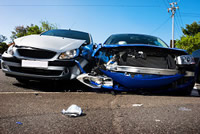
In the case of an accident, all that insurance suddenly becomes extremely relevant and valuable. Take advantage of the auto liability, collision and other insurance you've purchased with your vehicle. Follow these steps to navigate through an accident and receive the best possible settlement.
Before an Accident
Do you really understand your insurance policy? Take some time to read through the details of your insurance plan. Ask questions of your agent or company if you're unsure about procedures and costs. This small amount of prep time can help tremendously when the time comes.
Immediately After an Accident
Check with all accident participants to see if everyone is ok. Even a small fender-bender can result in minor injuries that can become long-lasting injuries.
Exchange information with the other driver(s). Provide the following pieces of information about yourself, and request the same from the other drivers:
-
- • Driver Name
-
- • Address
-
- • Phone Number
-
- • Insurance Carrier
-
- • Insurer's phone number (found on the proof-of-insurance cards drivers should carry)
-
- • License plate numbers
Next, call the police. Even a small accident needs a police report for the insurance claim. You may find police reluctant to file a report in the case of small accidents. Insist on an incidence report. This is instrumental in the claim completion. Also key – identifying and asking witnesses to the accident for contact information. In the case that any details are contested, witnesses can provide the unbiased account needed.
The final step is notifying your insurance. Call your insurance company either from the scene or soon after the accident so that details are fresh and the claim process can begin. Some companies offer a 24-hour claim filing service. Even if you are certain that the other driver is at fault, call your own insurance company to file the claim.
Claim process
The insurance company will attempt to determine who is at fault in the accident. By calling your own company, you're ensuring that your interests will be protected, and that you'll get the best service possible.
What are you looking for in an insurance claim? Consider the following areas:
-
- - Bodily injuries: If you've experienced any injuries as a result of the accident, and the other driver is at fault, you may be entitled to a monetary settlement.
- - Damages: The insurance company is responsible for paying the reasonable cost of repairs to your vehicle.
To support the information you provide over the phone or via written report to your insurance company, you may need to provide documentation such as a "proof of loss" form, auto repair and medical bills, and a copy of the police report.
Next, you'll probably get a call from the other driver's insurance company asking for your version of events that led to the accident. Prepare for this by speaking with your insurance carrier, and writing out comments beforehand. If the other driver is at fault, you should advise their insurance company that you are pursing a claim through your company. Your claim will seek reimbursement for costs your company may not pay, such as time off from work and other expenses. Work with your insurance company to ensure you receive what you need from the other driver's company.
To appraise the damage caused to your vehicle, a claims adjuster will inspect your car and develop an estimate of what it will take to restore or replace it. He or she will make a recommendation to the insurance company on the amount you should receive, minus your deductible.
In the case that you think the offered amount is too low, it may be time to initiate the appraisal clause. Your appraiser and your insurer's appraiser then select an independent source to try to resolve the dispute.
To learn more about auto insurance, read our continuing series, including articles on common types of coverage, choosing the best plan, and more.
 A frequent contributor to ERATE® since 2006, Amy Lillard is a freelance writer specializing in turning complex information into useful tips and tricks for readers. For questions or topic suggestions, contact Amy at [email protected].
A frequent contributor to ERATE® since 2006, Amy Lillard is a freelance writer specializing in turning complex information into useful tips and tricks for readers. For questions or topic suggestions, contact Amy at [email protected].
Other Related Articles:
Auto Insurance - Finding the Best Plan for You
Auto Loans Advice: New Cars & Used Cars
Car Buying vs Car Leasing
Life Insurance Overview
Insurance Products to Avoid
New and Used Auto Loan Rates
Choose Your State Below
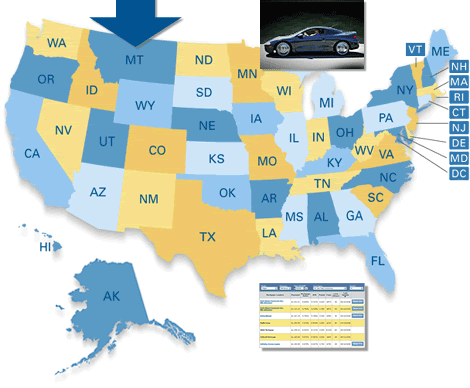
Start by selecting your state
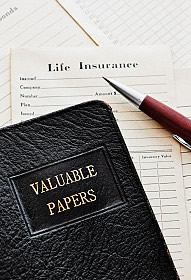
Life Insurance
- Term, Whole, Universal, Varialble Life Insurance
- Guidelines for Purchasing Life Insurance
- Life Insurance: Finding the Best Rates
- Life Insurance Explained: Types and Coverage

Medical Insurance
- Health Insurance Basics
- Healthcare Costs and Retirement
- Critical Flaws in HealthCare
- Disability Insurance
- Tips on Buying Long Term Care Insurance
General Insurance Articles
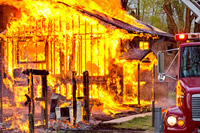
Homeowners Insurance
- Homeowners Insurance Premiums Policy
- Homeowners Insurance: Filing a Claim
- Punxsutawney Phil's forecast-homeowners insurance rates
- Homeowners Insurance Costly Trends
- Home Insurance Costs on the Rise, Coverage Options Decrease
- Homeowners Insurance: The Special Policy for Condo Owners
- Homeowners Insurance College Students Coverage
- Underinsured Homeowners
- Beyond Homeowners Insurance: Coverage for Renters
- What Home Owners Insurance Do You Need? Tips for the Best
- Home Insurance Quotes: Types of Home Owners Insurance
- Home Insurance: How are Insurance Quotes Determined?
- Homeowners Insurance: Finding the Best Quotes
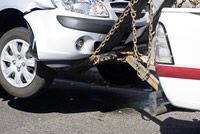

Auto Insurance

- Hitting the brakes on auto insurance costs
- Car Insurance Quotes: Discovering best deals
- Car Ins Quotes: What Factors Determine Rates
- Auto Insurance Quotes and Policies: Commonly Used Terms
- Shopping Prep: What You'll Need to Obtain Car Insurance Quotes
- Auto Insurance Terms & Descriptions
- Understanding Your Auto Insurance Quotes: The 7 Types of Car Insurance
- Auto Insurance - Best Plan for You
- How much Car Insurance to buy
- Need to Know Auto Ins Policy
- Automobile Insurance Settlement Advice
- Managing Auto Insurance: What to Do After an Accident
- Filing a Car Insurance Claim: Steps to Follow after an Accident
- Auto Insurance Steps to Filing a Claim
- Tips - Reducing your Auto Insurance Expenses
- Driving a Hard Bargain
- Slow Down Drive Safely
- Cheapest & Most Expensive Vehicles to Insure
